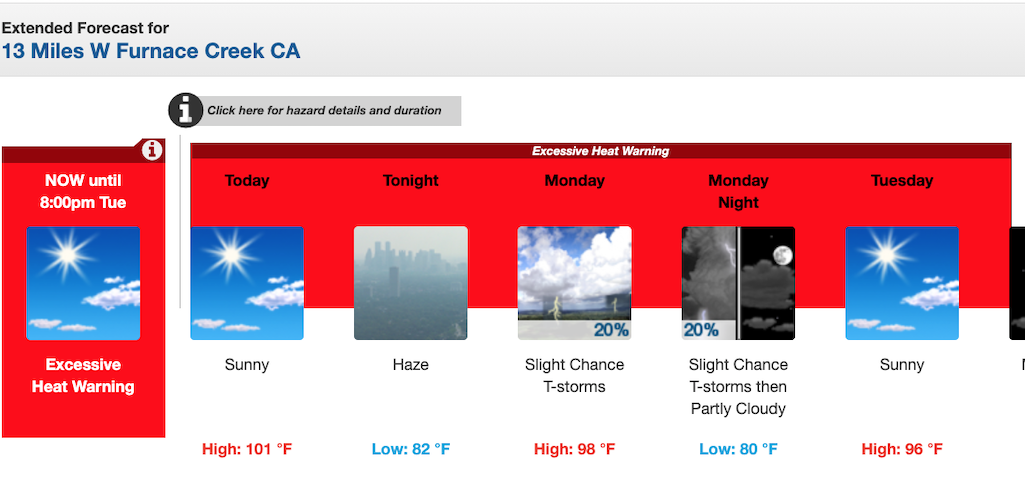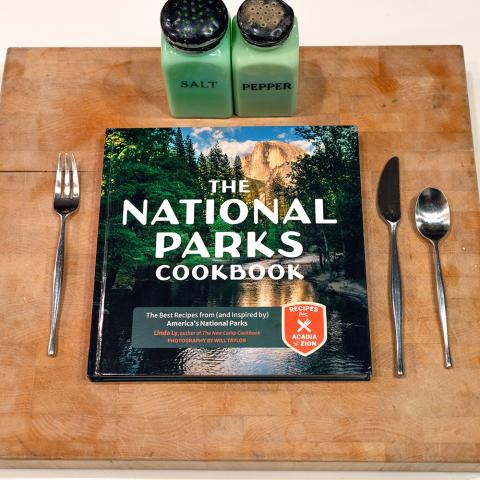
Excessive heat warnings were posted for a number of Western national parks, including Death Valley/NOAA
Searing heat that has settled over the Southwest has National Park Service officials urging visitors to prepare for the high heat and know their limitations.
Though Death Valley National Park has not seen temperatures rise to 134° Fahrenheit, a world-record mark said to have been reached in the park in 1913, it's still hot, brutally so for the unprepared, in the park.
"Expect high temperatures of 110°F to 120°F+ (43°C to 49°C+). Drink plenty of water and carry extra," reads a warning on the park's website. "Avoid hiking (after 10 a.m). Travel prepared to survive. In the case of a heat related illness, get to a cool place and seek help as soon as possible."
At Lake Mead National Recreation Area in Nevada, the Park Service was encouraging visitors to recreate responsibly if they came to the park during this summer's "record high temperatures."
"During this time of unprecedented high temperature visitors are asked to consider rescheduling visits to when weather conditions improve. Many visitors and staff have experienced heat illness as temperatures exceed 110 degrees during the day," park staff reported. "You can recreate responsibly by packing plenty of water and salty snacks, visiting early in the morning or late in the evening when temperatures are less extreme, and by keeping your outdoor activities short in duration."
Lake Mead has been under a severe heat wave since late June. High temperatures in the park are anticipated to be over 110 degrees for the next few days, and over 105 degrees for the next several weeks, a park release said. Current forecasts show that lows are not expected to be below 80 degrees for the foreseeable future, it added.
Heat illness occurs when your body can’t dissipate heat effectively and is unable to control your temperature. Most heat illnesses happen from staying outdoors in the heat for too long. Drinking alcohol can increase the risk of heat illness. Heat illness can cause serious complications, even death.
Rangers have been very busy responding to multiple medical emergencies caused by the excessive heat. The call volume is extreme, and unfortunately, not every request for assistance can be granted, the park said, adding that, "(V)isitors are cautioned to prepare for their visit assuming no ranger response."
At Grand Canyon National Park in Arizona, "an excessive heat warning remains in effect for the lower portions of the Grand Canyon through the weekend, with temperatures reaching 115°F (46°C)."
Elsewhere, an excessive heat warning was also posted for Zion National Park in Utah.




 Support Essential Coverage of Essential Places
Support Essential Coverage of Essential Places






